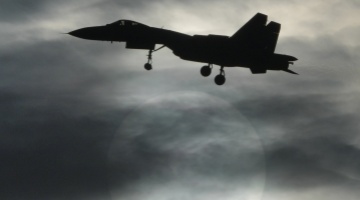As Lai Ching-te approaches the one-year mark of his term as the regional leader of Taiwan island, the Democratic Progressive Party (DPP) authorities have shown no sign of improving people's livelihoods or fostering cross-Strait peace. Instead, they are doubling down on their "green terror" campaign and using the "Lai Ching-te's 17 strategies" to undermine peaceful cross-Strait exchanges.
In the latest move, Taiwan's mainland affairs council has once again targeted so-called "pro-mainland" entertainers, announcing plans to penalize more than 20 entertainers who reposted content related to "cross-Straits reunification" and the PLA military drills in Taiwan Straits on Chinese social media. Among those singled out is actress Ouyang Nana. Merely for expressing heartfelt sentiments about her homeland, and merely because standing by the one-China principle and favor reunification, they have become a repeated target of harassment, intimidation, and coercion by the DPP authorities - exposing their anxiety and failure.
On the surface, the immediate trigger appears to be an incident in March, when several Taiwan-based celebrities reposted content using the term "Taiwan, Province of China." The DPP quickly labeled this as part of the mainland's "united front tool." But what truly unsettles them is the growing support for reunification and opposition to "Taiwan independence" in the island.
Even before this March incident, there had already been waves of online solidarity among Taiwan-based entertainers, particularly after Lai Ching-te's inaugural address touting pro-independence rhetoric. Many of them responded by posting that "Taiwan must return to the motherland's embrace."
But the emergence of this situation is, in fact, inevitable. Increasing numbers of young people in the Taiwan island, through online interaction, travel, and study, are experiencing firsthand the mainland's prosperity and openness, civilization and progress. This has gradually immunized them against the DPP's lies and strengthened their identification with cross-Strait reunification. The fact that public figures now openly declare "people on both sides of the Straits are one family" is a clear sign of this awakening in public consciousness.
It's not just entertainers. In recent years, the DPP authorities have expanded their secessionist ideological control and targets of abuses of law enforcement by revising the five amendments to the so-called security laws and introducing the so-called "anti-infiltration act," attempting to label any words or actions related to the mainland as "threats to security."
It has gone from labeling traditional folk beliefs such as Mazu and Guan Gong worship as "united front tools" to cracking down on spouses from the mainland and scrutinizing residents holding mainland residence permits, and now to intimidating Taiwan-based entertainers in an attempt to block their normal development and exchanges with the mainland.
The crazy actions of the DPP are revealing the deepest fear: the increasing cross-Strait interactions will allow more and more people in Taiwan island to feel the mainland's development, goodwill and progress, totally shattering the DPP's carefully fabricated myth of "mainland threats."
A recent poll on the island shows that 79.5 percent of the public is dissatisfied with Lai's policies, with 40.5 percent specifically unhappy with his handling of cross-Straits relations. Since Lai took office, Taiwan's economy has remained sluggish, with shrinking exports, weak investment, and a continuous decline in people's living standards. Rising tensions with the mainland and the unstable situation in the Taiwan Straits intensify public fears and complicate Taiwan's future development.
In contrast, the mainland has continued to introduce favorable policies for Taiwan, offering vast development opportunities to Taiwan compatriots. From the "31 measures" to the "26 measures," and more recently the "22 measures on agriculture and forestry," and the construction of a demonstration zone for the integrated development of Fujian and Taiwan region, the mainland has shown its goodwill and sincerity toward Taiwan compatriots through concrete actions.
An increasing number of young people in Taiwan are choosing to study, work, and start businesses in the mainland, and through their actions, they demonstrate that the momentum of cross-Straits exchanges is unstoppable.
The DPP's claiming to "investigate and punish" entertainers like Ouyang Nana is a calculated show designed to divert public attention. By creating a fictional enemy - claiming that pro-mainland entertainers pose a threat to Taiwan's security - Lai is attempting to deflect public anger over his failed governance into fear of so-called "mainland infiltration."
However, Taiwan society has already seen through this tactic. Taiwan entertainers' pursuing careers in the mainland is, in essence, a normal form of cultural exchange driven by market forces, as well as a normal expression of the artistic exchange rooted in the shared Chinese ethnicity and culture across the Straits.
The current "administrative audits" targeting these entertainers fully expose the absurd logic of this "green terror": on the one hand, the DPP loudly claims that it defends "Taiwan's democracy and freedom," while on the other, it engages in witch-hunt style scrutiny of entertainers' remarks.
This contradictory double standard only highlights the hypocrisy of the DPP's so-called "freedom and democracy" and the blatant violation of the cultural rights of people on both sides of the Taiwan Straits.
The more the DPP aggressively promotes "anti-mainland" rhetoric, the more it exposes the dead end of its political path. Whether it's the obsession with "de-Sinicization," manifested by its administrative agency's website arbitrarily changing 96.4 percent of "Han ethnicity" to "other populations," or Lai's clumsy political maneuvering during a World War II commemoration to promote "departing from the Chinese economy for the global north," the ridiculousness and absurdness of cultural "Taiwan independence" and cultural nihilism is evident.
In contrast, what is wrong with some Taiwan entertainers and residents who hold a correct view of history, values, national identity and reunification expressing their national identity? What crimes they have? If Lai continues to stubbornly cling to his path and ties Taiwan to the "Taiwan independence" bandwagon, he will ultimately reap what he sows and be completely abandoned by public opinion in the island.













